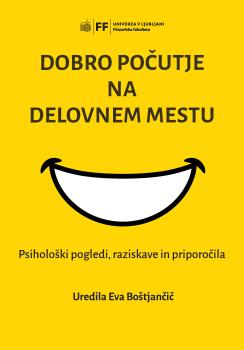My Work Is Not Meaningful. Am I More Prone to Burnout? – The Role of Meaningful Work in Employees’ Risk for Burnout
Synopsis
Experiencing meaningful work has a range of positive consequences for employees, including increased engagement and effectiveness, as well as greater work satisfaction and well-being in the workplace. Due to the increasing occurrence of burnout in recent years, we were interested in whether experiencing meaningful work could act as a protective factor against symptoms of burnout. The study involved 316 participants (of which 256 were women) with an average age of 41.1 years. Data were collected through a survey distributed on social networks, including two questionnaires translated into Slovenian: The Work and Meaning Inventory (WAMI) and a shorter form of the Burnout Assessment Tool (BAT), designed for work environments. The results showed that a higher degree of meaningful work reduces the assessment of burnout. When studying differences between generational groups, there were no statistically significant differences in experiencing meaning and burnout. The study confirmed the findings of previous studies that experiencing meaningful work is an important protective factor against the development of burnout symptoms. Future research should address the impact of the relationship between meaningful work and specific professions on the risk of burnout. By researching this area, significant contributions can be made to a better understanding of the importance of finding meaning in work and encouraging organizations to create work environments where employees experience meaningful work, consequently leading to greater engagement and effectiveness in performing their work tasks.
Downloads
Pages
Published
License

This work is licensed under a Creative Commons Attribution-ShareAlike 4.0 International License.


